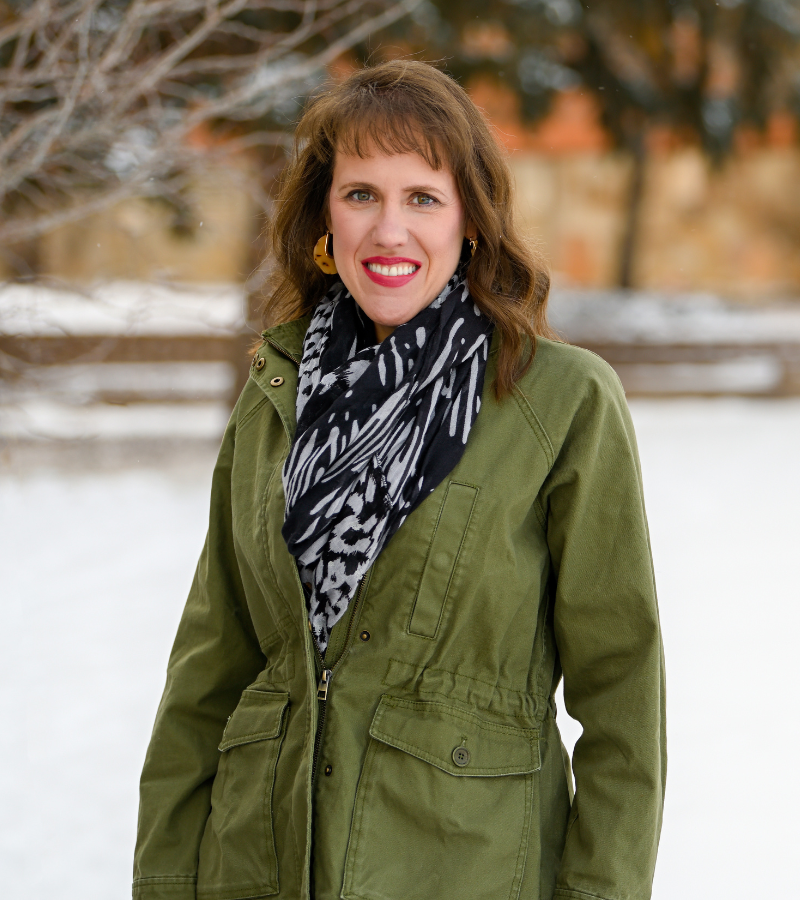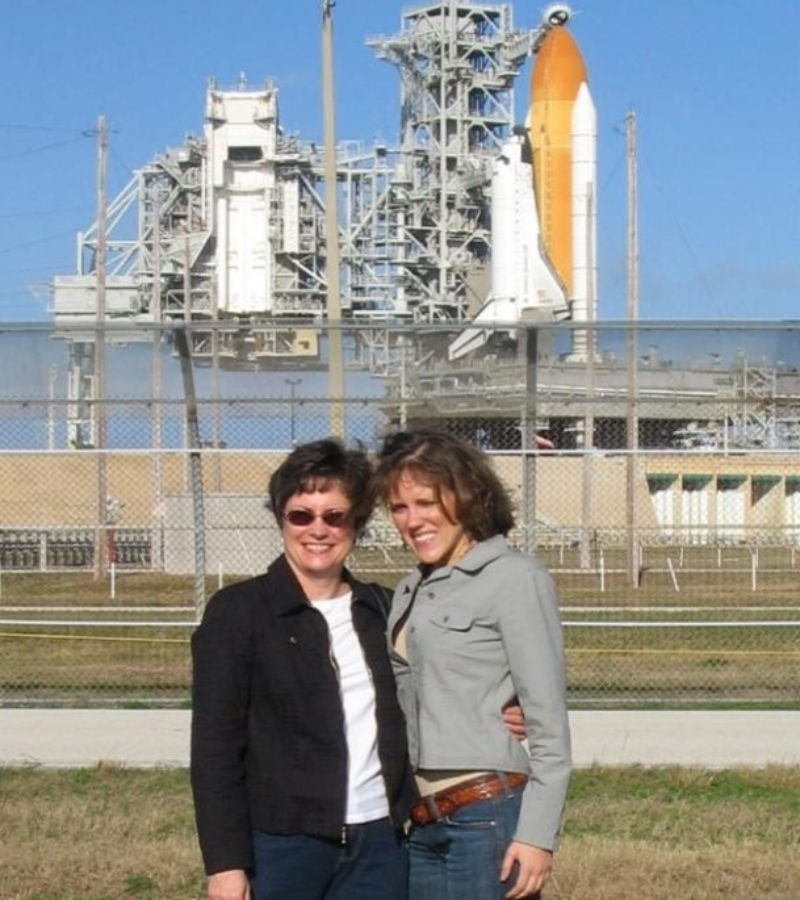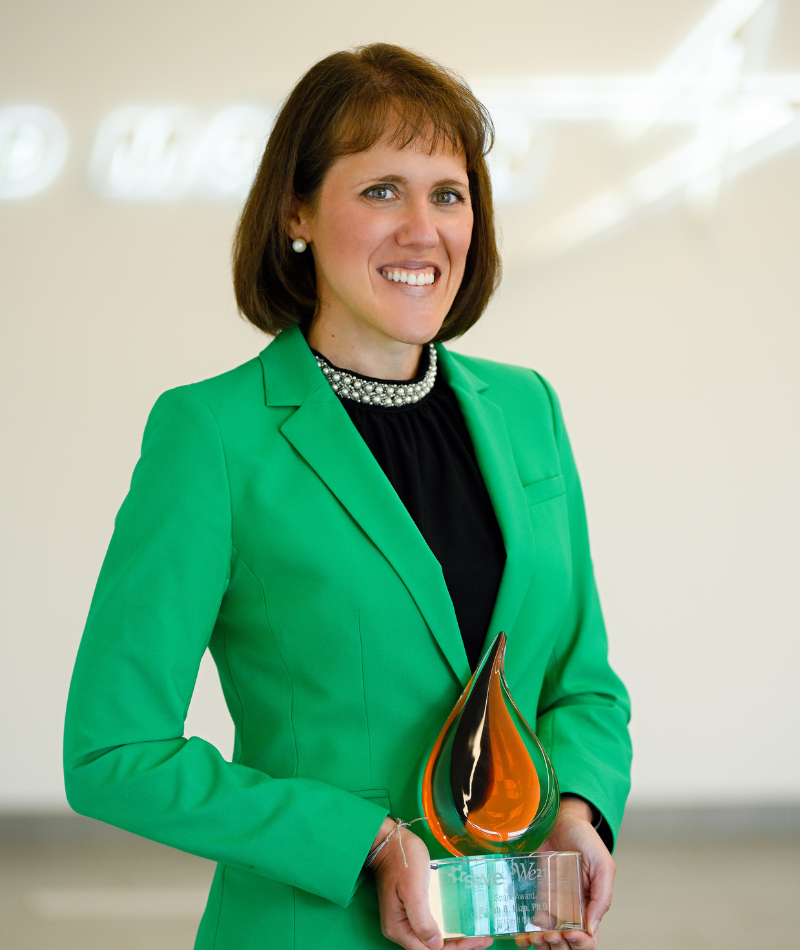What does it take to successfully lead 6,500 Lockheed Martin employees across 18 U.S. and UK sites?
For Dr. Sarah Hiza, vice president and general manager for Lockheed Martin’s Space Strategic and Missile Defense line of business, it’s the accumulation of life lessons gathered across her unique experiences—from growing up in a rural town, to getting a Ph.D. in polymer science, to cultivating outdoor leadership skills on global backpacking expeditions, to taking chances on career moves across the U.S. for roles from engineering to operations to leadership.
These experiences were key to building her character and providing the type of resilience she’s leaned on to propel her career at Lockheed Martin Space forward. Along the way, she’s been a major advocate of:
Championing teamwork
Extreme ownership
Encouraging mentorship
Embracing a people-focused approach to leadership
Sarah was asked to describe her experiences in the latest podcast by Wonder Women Tech. Here are some key excerpts from her interview:

A Strong Science Foundation
Sarah grew up in a small rural town called Galax, Virginia, where the main industries were furniture and textiles—nothing like the aerospace and defense industry.
In high school, she became interested in the foundations of chemistry. “This gave me the confidence to go after a chemistry degree when I was in college," Sarah said.
She eventually went on to complete a bachelor’s degree from Virginia Tech and a Ph.D. in polymer science from The University of Akron.
Trying New Roles

Her first job out of graduate school was at ATK [since acquired by Northrop Grumman], as an engineer on the space shuttle rocket booster program. After about four years as a scientist and principal investigator, she took a chance on a leadership role in operations.
“I was kind of hesitant, thinking, ‘well, I've never done that, maybe there's something to learn here. And if I stink at it, hopefully they take me back in science and engineering.’ Turns out, that role taught me so much about how operations is really where the rubber hits the road,” Sarah said.
By learning another side of the business, she walked away with a deeper understanding of how important it is to champion collaboration in order to set everyone up for success.
Lessons in Leadership
When asked to describe her leadership style, she shared: “Earlier in my career, I was trying to be authentic, but you have a lot of input coming at you. Finding that balance between admiring and looking up to someone, but also being true to yourself and what you bring to bear, is important.”
She added that getting 360-degree feedback from teams, peers, stakeholders and customers makes you aware of blind spots and keeps you in check.
The National Outdoor Leadership School (NOLS) also had a big impact on her ability to lead and her perspective on leadership. She currently serves as a board member for the organization.
“They’re an organization that specializes in teaching outdoor skills and leadership,” Sarah explained. “The course I took taught me so much about my role on a team, as well as risk management and how to deal with adversity. I’ve taken all of those skills I learned then, and I apply them to my leadership role at Lockheed Martin today.”

Drawn to Defense
When considering what drew her to a career in the defense industry, she didn’t hesitate.
“First and foremost is the mission,” Sarah said. “Second is the people I work with. I am surrounded by folks who are really just as devoted, if not more than me, to our mission...to this country...to committing to use their skills for the good of our nation. They’re impressive, interesting, intelligent people. Bringing that all together makes an excellent team.”
In this industry, Sarah leads a challenging portfolio of programs supporting strategic deterrence.
“The mission of strategic missile defense is to deter, defend, or if necessary, defeat adversaries in the geopolitical world. As you can imagine, some of those technologies are pretty challenging, but we have the right team to get the job done.”
She also advocates for people to consider sharing their skills to support national security.
“There are all kinds of roles needed to support national security,” Sarah continued. “I do think there's something really honorable about supporting your country and doing something out of duty and obligation to give back to your country. And it takes all of us to make this happen.”
For anyone considering a career at Lockheed Martin or in defense, she asks them to contemplate:
Mentoring and Keeping the Best Talent
Sarah also discussed two values near and dear to her heart: inclusion and mentorship.
“Lockheed Martin has built a flexible culture while still meeting the mission and business needs. That’s the right recipe to have really high retention of a high performing team ,” she remarked.
To help retain talent, Sarah highlighted the three key areas she focuses on:
- The employee feels like they’re working on an important mission.
- The employee feels challenged in the job.
- Most importantly, we see them as who they are, respect them as an individual, and make sure their job experience aligns with their life’s goals and life balance.
As a testament of her commitment to supporting others, Sarah received an award from the Society of Women Engineers for her dedication to mentoring young women (pictured below).

The Road Less Traveled





